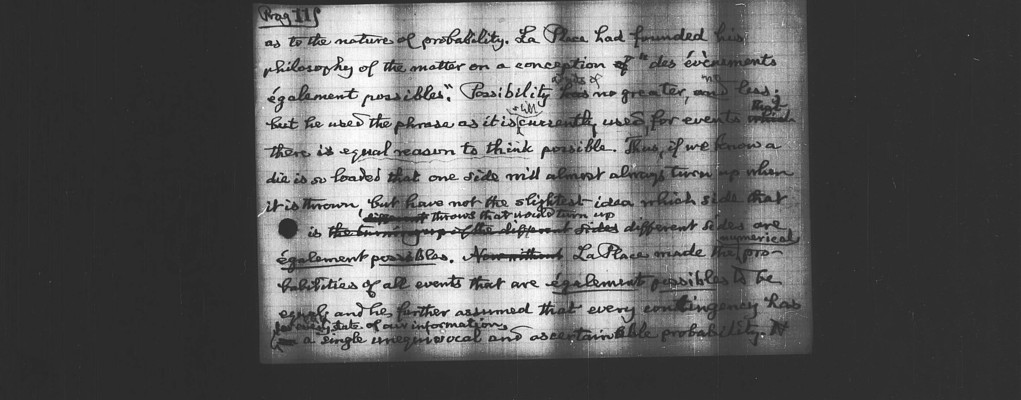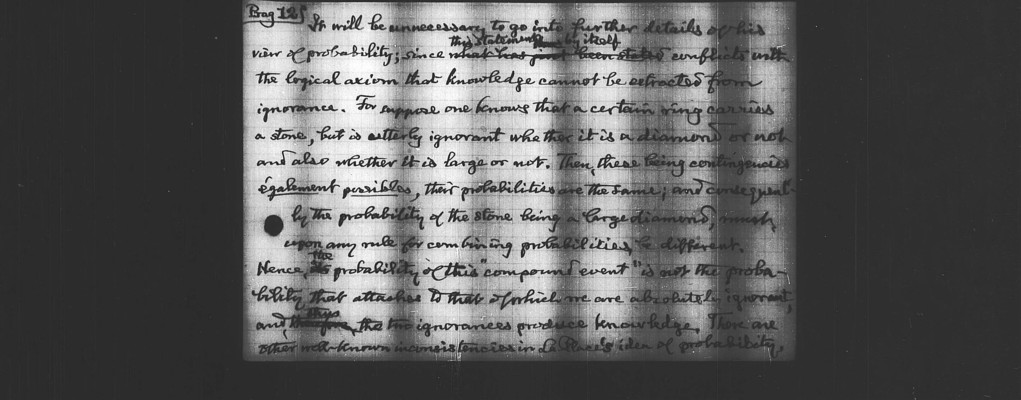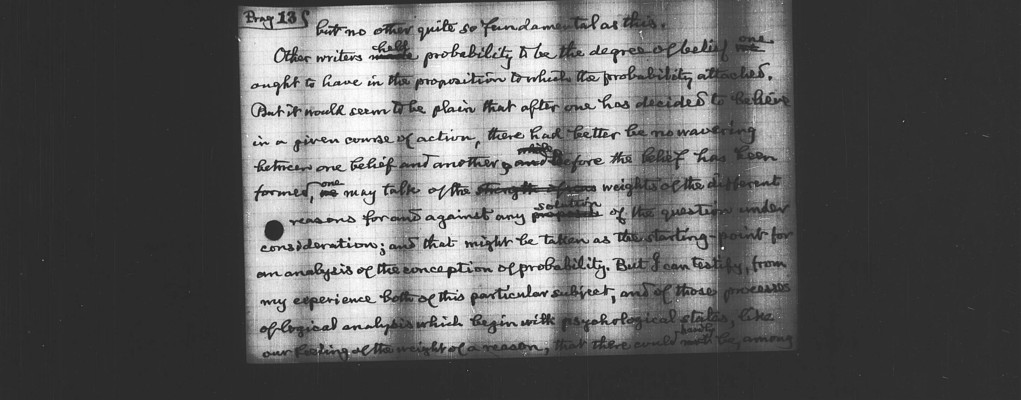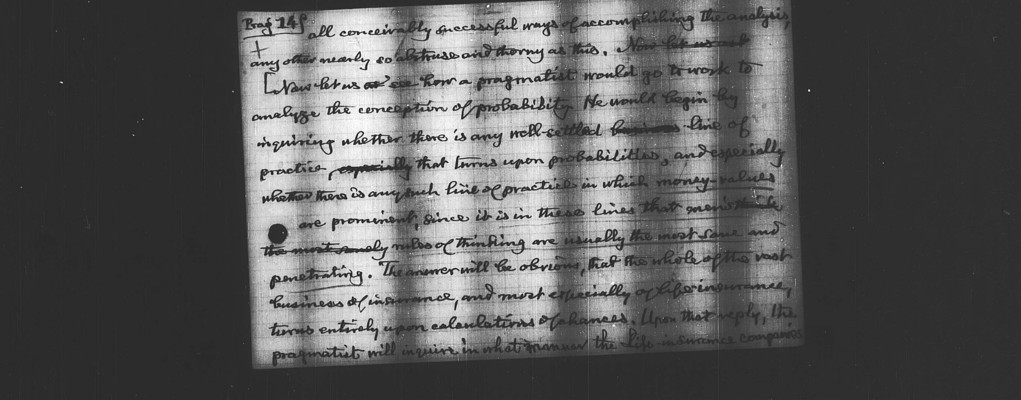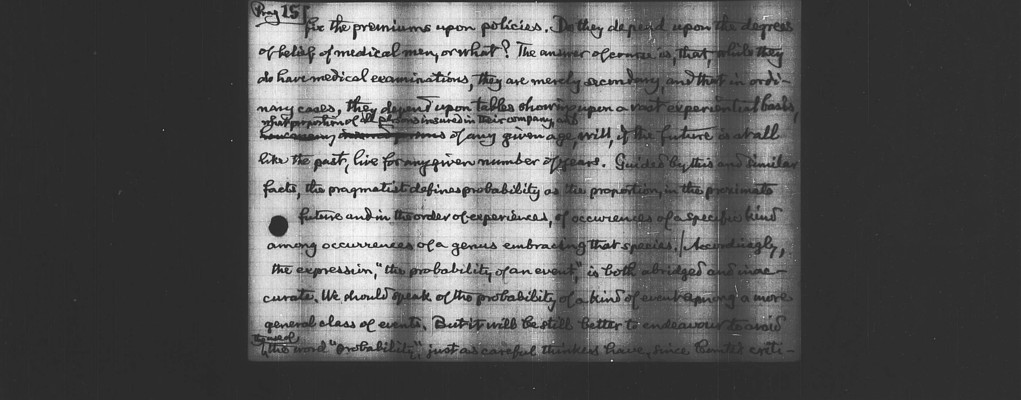Pages
11
Prag 11 as to the nature of probability. LaPlace had founded his philosophy of the matter on a conception "des evenuments egalement possibles." Possibility admits no greater and no less but he used the phrase as it is still currently used for events that there is equal reason to think possible. Thus if we know a die is so loaded that one side will almost always turn up when it is thrown but have not the slightest idea which side that is throws that would turn up different sides are egalement possibles. LaPlace made the numberical probabilities of all events that are egalement possibles to be equal and he futher assumed that every contingency has for every state of our information a single unequivocal and ascertainable probability.
12
Prag 12 It will be unnecessary to go into futher details of his vision of probability since this statement by itself conflict with the logical axim that knowledge cannot be extracted from ignorance. For support one knows that a certain ring carries a stone but is utterly ignorant whether it is a diamond of not and also whether it is large or not. Then these being contingencies egalement possibilites their probabilities are the same and consequential by the probability of the stone being a large diamond much upon any rule for combining probabilites be different. Hence the probability of this compount event is not the probability that attashes to that of which we are absolutely ignorant and thus the two ignornaces produce knowledge. There are other well known inconsistences in LaPaces idea of probability.
